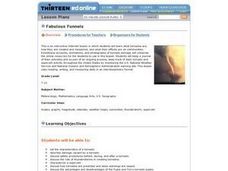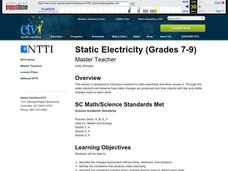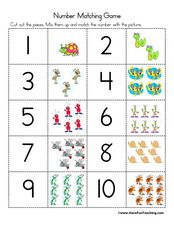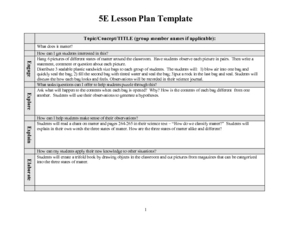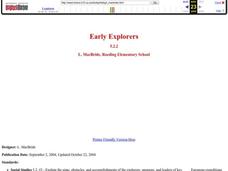Curated OER
Seeing Art in Historical Context: An Activity to Promote Visual Literacy
Students consider works of art in their historical context. In this art in historical context lesson plan, students are encouraged to think about and record their prior knowledge of the historical period and to make inferences about the...
Curated OER
Fabulous Funnels
Students explore what tornados are, how they are created and measured, and what their effects are on communities. They keep a journal of their activities and explorations as part of an ongoing process of learning.
Curated OER
Make That Shot!
Students figure out basic percentages by shooting paper balls into a basket, recording results, and calculating individual and team percentages for ten shots.
Curated OER
The Chocolate War
Students scrutinize the story, "The chocolate War" by Robert Cormier for examples of nonconformity in the face of power. The nature of the relationship between students in the story is compared to the associations of the reader.
Curated OER
If I Could Have Lived in Another Time or Culture
Third graders develop multi-paragraph compositions. They include an introduction, first and second level support, and a conclusion. They use a variety of sentence structures (e.g., simple, compound/complex) and sentence types (i.e.,...
Curated OER
A Neighborhood Expedition
Students plan and conduct an expedition through their neighborhood based on the techniques used by the Harriman Expedition to Alaska in 1899. They research the Harriman expedition on the internet and then create a route and collection...
Curated OER
Take an Ant to Lunch
Second graders construct a model of an ant, exemplifying that ants are insects. Students gather data create a pictograph chart to show ant food preferences. Also, 2nd graders access the Internet to explore ant eating habits.
Curated OER
Solids, Liquids and Gases
Students are introduced to the various states of matter. After watching a video, they discover how to compare the three states using its shape and volume. In groups, they participate in an experiment with solids, liquids and gases and...
Curated OER
Static Electricity
Students are introduced to the concept of static electricity and its causes. After viewing video segments, they observe its effect on various objects. In groups, they discover how static electricity is produced and how objects with...
Curated OER
Letter A Word Search
Learners practice their handwriting and word recognition. In this letter A lesson, students identify eight words with pictures as they use lowercase letters to complete an elementary word search.
Curated OER
Number Matching Game
In this number matching worksheet, students match the numbers 1 - 10 to the pictures of items with that number. Students complete 10 matches.
Curated OER
Technology-commected Folklife Lesson Plan: Fables
Students discuss ways the stories were alike and different. The teacher demonstrate how to draw a Venn diagram using Microsoft Word. They label the two circles and enter the likenesses and differences on the diagram.
Curated OER
Alliteration
Learners write and illustrate a sentence which names a letter of the alphabet. The sentence should have subject, verb, describing words, and incorporate alliterative techniques.
Curated OER
What Does It Matter?
Learners match definitions with vocabulary words and learn basic facts about matter. Then, they see how to determine the physical characteristics of matter. They determine the mass, volume, and density of objects using appropriate tools...
Curated OER
What Does It Matter?
Students define matter, the chemical properties of matter, and the physical properties of matter. They name physical and chemical properties of matter (by classifying using a Tree Map). Students determine the mass, volume, and density of...
Curated OER
History Close to Home
Students examine primary sources as related to Nevada and the Civil War. For this United States history lesson, students gather and analyze various primary sources in small groups and interpret unknown vocabulary words by using context...
Curated OER
Early Explorers
Fifth graders explain the reasons why Europeans decided to explore and colonize the world. In this European explorers lesson, 5th graders complete a wall matrix about the explorers and write a summary about the explorer of their choice.
Curated OER
Memoirs and Personal Essays
Students can then pinpoint problems the characters experience and interview their parents to see if they too may have once faced a similar problem. Interviews with family members can be recorded by students in their home language.
Curated OER
Foundations of WWI
Students explore how World War I created a foundation for the United States to become a world power. For this World History lesson, students work in small groups to create posters and an oral presentation to share their findings with the...
T. Smith Publishing
Pachycephalasaurus
Bet you can't say that three times fast! Your pupils will have fun saying and finding as many words as they can in the word Pachycephalasaurus. After the word play, class members have a chance to do a little research about the dinosaur...
Curated OER
An Explication of Death
Fourth graders, in groups, analyze portions of William Cullen Bryant's poem, "Thanatopsis." They present their analysis to the class and discuss the meaning of the poem as a whole. They also identify the poetic elements present in the...
Curated OER
Making Good Decisions
Students practice balancing different interests involved in solving social problems, looking for the most realistic solution based on the advantages and disadvantages. They also consider the concept of compromise.
Curated OER
Vowel Detective
Who doesn't love playing detective? Get out those magnifying glasses because your class has to snoop to determine which vowels have gone missing. They are presented with a beginning and ending consonant, it's up to them to determine...
Curated OER
Look At Those Leaves
Students observe leaves. In this plant biology instructional activity, students examine leaves and classify them according to size, shape, and color. Students learn more about the leaves by visiting suggested websites.



